Please switch to a modern browser (e.g. Google Chrome, Firefox or Microsoft Edge) in order to enjoy the best user experience.
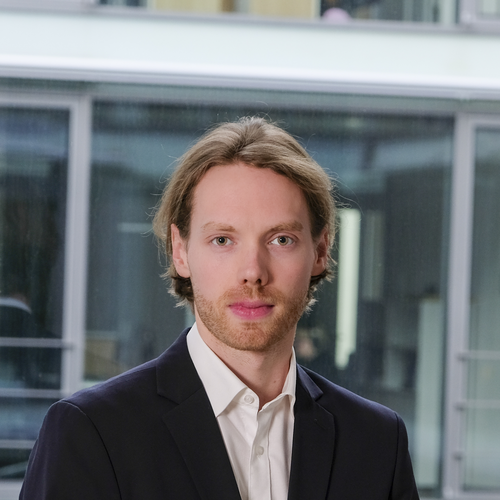
Researcher for Energy and Climate Policy
Tel: +49 221 4981-673 Mail: kueper@iwkoeln.de Malte KüperResearch unit
Hüther, Michael / Küper, Malte / Schaefer, Thilo, 2023, Zukunft Erdgas. Wie viel brauchen wir noch und was kommt dann?, IW-Policy Paper, Nr. 5, Köln
Zur Studie
Kohlisch, Enno / Koppel, Oliver / Küper, Malte / Puls, Thomas, 2023, Forschungsschwerpunkte der Kfz-Industrie am Standort Deutschland. Eine Auswertung auf Basis der IW-Patentdatenbank, in: IW-Trends, 50. Jg., Nr. 1/2023, S. 23-69
Zur Studie
Küper, Malte / Potthoff, Jennifer, 2022, Wie Haushalte Gas sparen können, IW-Report, Nr. 45, Köln
Zur Studie
Küper, Malte / Koppel, Oliver / Kohlisch, Enno, 2021, Grüne Innovationen der Grundstoffindustrie in NRW, IW-Report, Nr. 40, Köln
Zur Studie
Kohlisch, Enno / Koppel, Oliver / Küper, Malte / Puls, Thomas, 2021, Innovationswandel in der deutschen Kfz-Industrie. Eine Analyse mit der IW-Patentdatenbank, in: IW-Trends, 48. Jg., Nr. 3, S. 68-88
Zur Studie
Lena Tholen / Anna Leipprand / Dagmar Kiyar / Sarah Maier / Malte Küper / Thomas Adisorn / Andreas Fischer, 2021, The Green Hydrogen Puzzle. Towards a German Policy Framework for Industry, in: Sustainability, No. 13 (22):12626
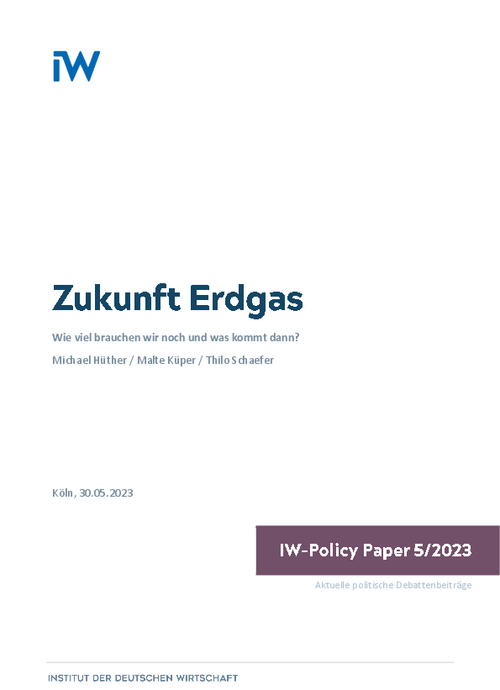
Natural gas has become increasingly important for Germany in the last three decades, be it for heating buildings, providing process heat in industry or generating electricity. At the same time, the dependence on imports of natural gas has risen to almost 100 percent in recent decades, with most of the imports coming from Russia.
IW
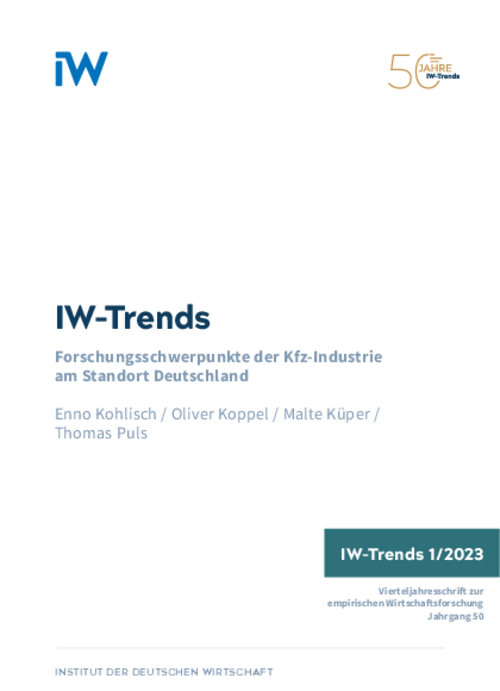
The automotive industry in Germany is currently facing several challenges. Car production had already fallen significantly before the Covid19 pandemic and in 2020 and 2021 suffered two slumps of historic proportions.
IW
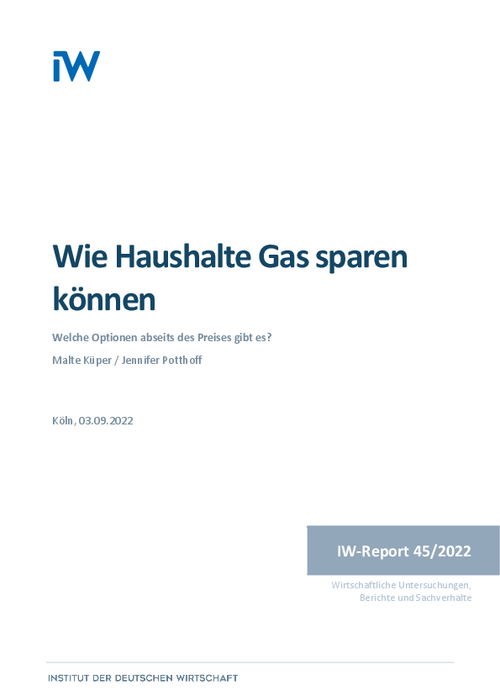
In view of the current gas emergency, all consumers are urged to reduce their gas consumption. High prices are seen as the most effective incentive to save gas.
IW
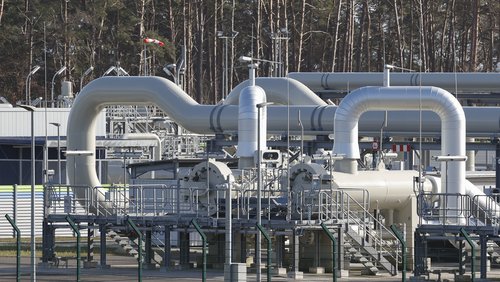
Putin's war in Ukraine has been going on for over a week now. In order to hit Russia hard financially, an import stop for gas is also discussed. This would not only put a strain on Russia, but also on the European gas supply.
IW
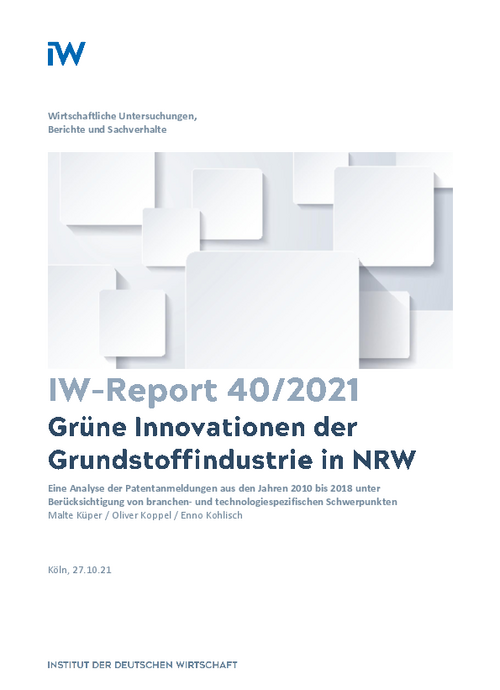
Transforming the economy towards climate-neutrality poses major challenges for the energy-intensive primary industry in North Rhine-Westphalia (NRW). At the same time, the development of environmentally friendly basic materials and production processes presents a great potential for transforming NRW into an attractive industrial location for the future.
IW
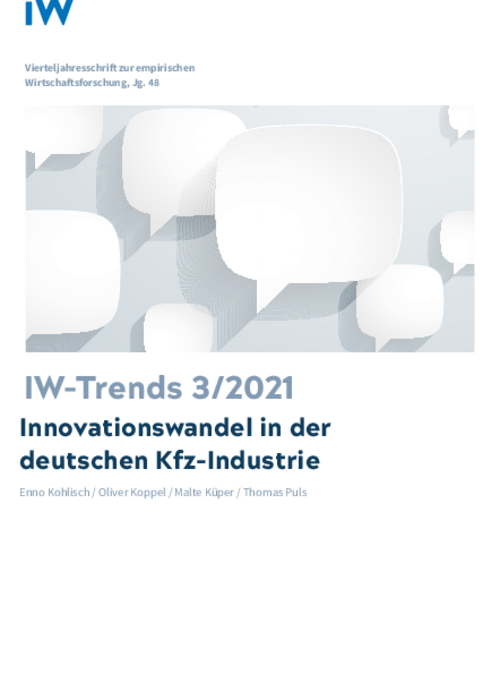
Social and political change necessitates corresponding innovations in motor vehicle technology. This paper analyses the nature of current technological progress in Germany’s motor vehicle industry.
IW